About Charles
A graduate of Yale University and Harvard Business School, Charles has been a frequent contributor to This American Life, NPR, The Colbert Report, PBS’s NewsHour, and Frontline.
Charles led the team that won the 2013 Pulitzer prize in explanatory journalism for “The iEconomy,” a series that examined the global economy through the lens of Apple. That series included examinations of such topics as the factories in China where iPhones and iPads are manufactured.
Charles has also received The George Polk award, the Gerald Loeb award, the Investigative Reporters and Editors Medal, the Scripps Howard National Journalism award, the Robert F. Kennedy Journalism Award, and other honors.
While a reporter at the Los Angeles Times, Charles reported from Iraq about American military operations.
Before becoming a full-time journalist in 2003, Charles worked as an analyst for American Property Global Partners, a private equity firm and co-founded SWPA Education Management Group, L.L.C., which developed education programs for medically underserved areas.
He was also, for one terrifying day in 1999, a bike messenger in San Francisco.
Charles lives in Santa Cruz with his wife and two children.
CHARLES DUHIGG is a Pulitzer prize-winning reporter and the author of The Power of Habit, which spent over three years on New York Times bestseller lists. His second book, Smarter Faster Better, was a bestseller.
His latest book, Supercommunicators, was published in February, 2024, and is also a bestseller.
Charles currently writes for The New Yorker magazine.
Media
Articles & Reviews
-
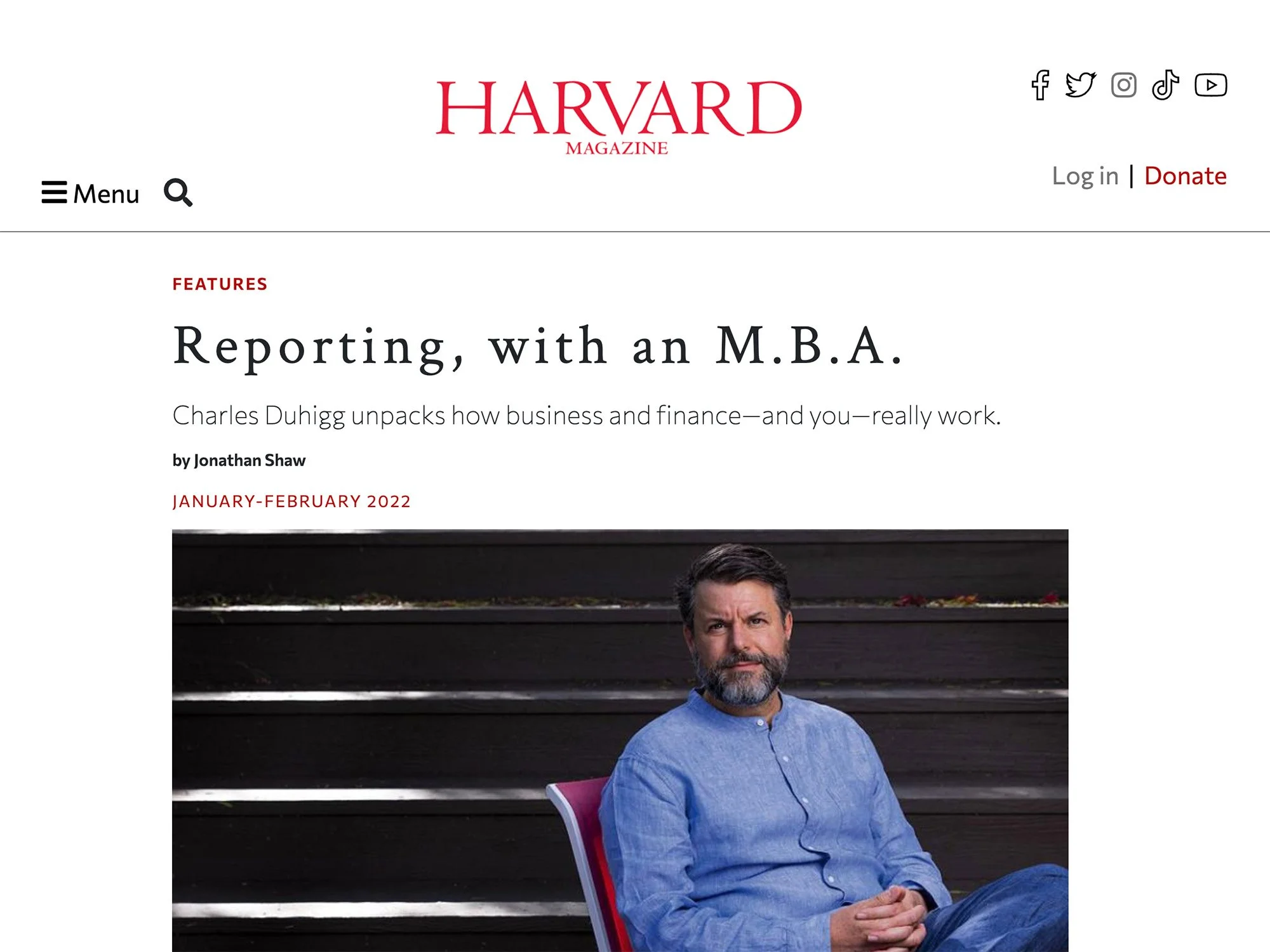
Reporting, with an M.B.A.
Harvard Magazine | Jan 1, 2022
-
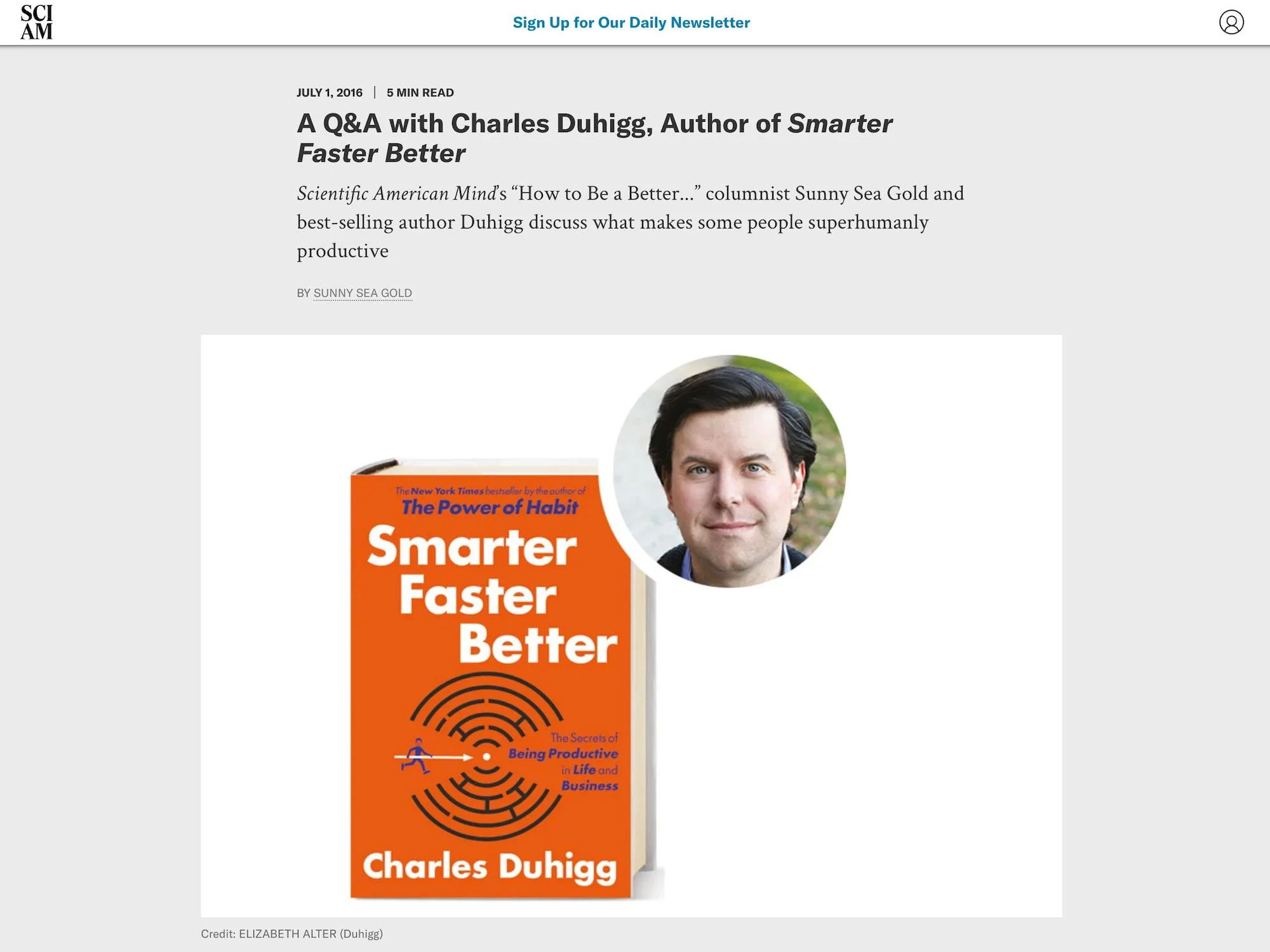
A Q&A with Charles Duhigg, Author of Smarter Faster Better
Scientific American | July 1, 2016
-

The Life Biz
The New Yorker | Mar 21, 2016
-

‘Smarter, Faster, Better’: The New Science of Productivity
Knowledge at Wharton | June 2, 2016
-

MIND Reviews: The Power of Habit
Scientific American | July 1, 2012
-

The Power of Habit and How to Hack It
Wired | April 30, 2012
Television
-
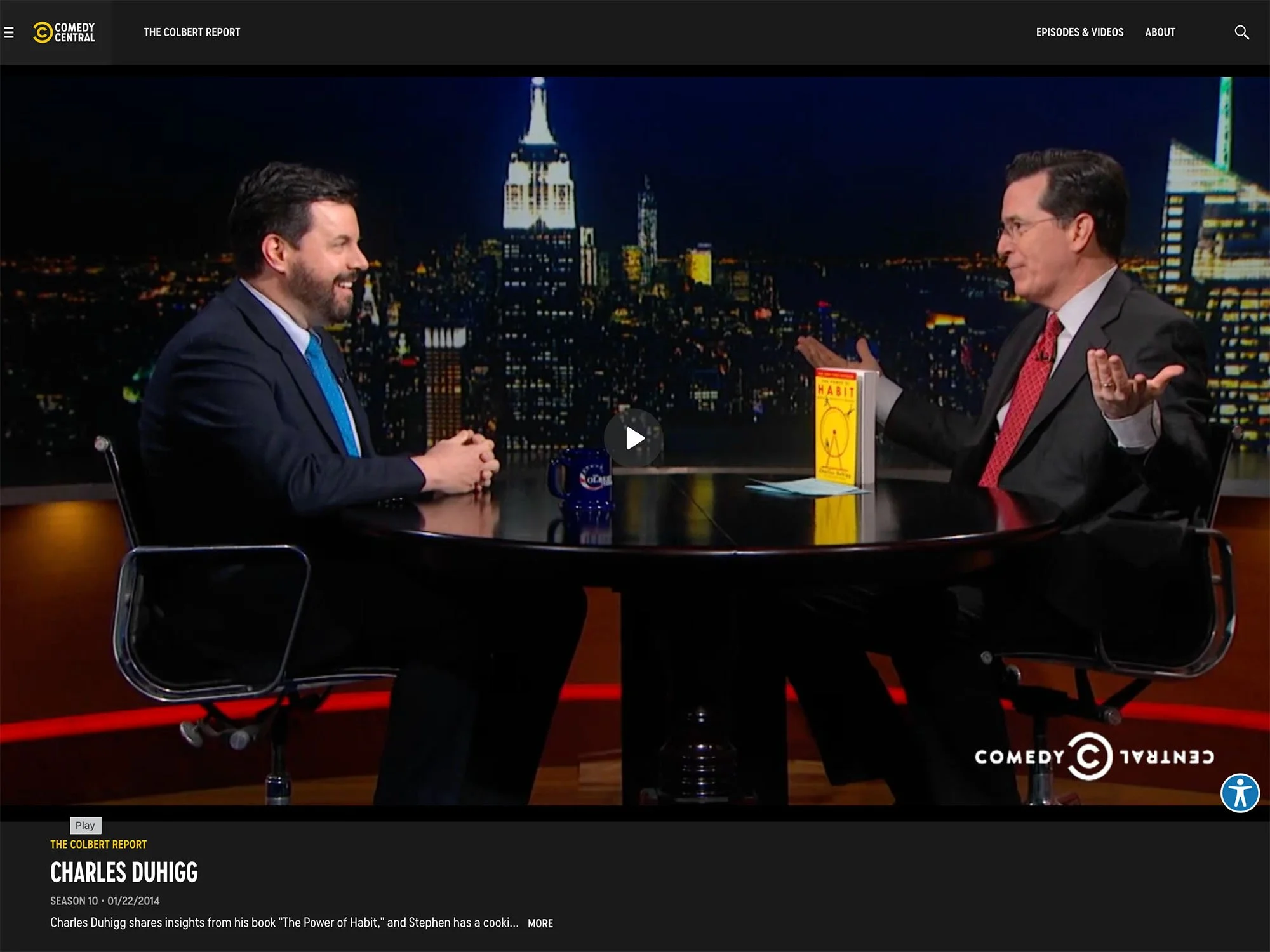
Charles on The Colbert Report
The Colbert Report | Jan 22, 2014
-

Well Done: Charles Duhigg's guide to living a productive life
CBS Mornings | MAR 21, 2016
-

How retailers cash in on your habits
The Today Show | Feb. 27, 2012
Podcasts
-
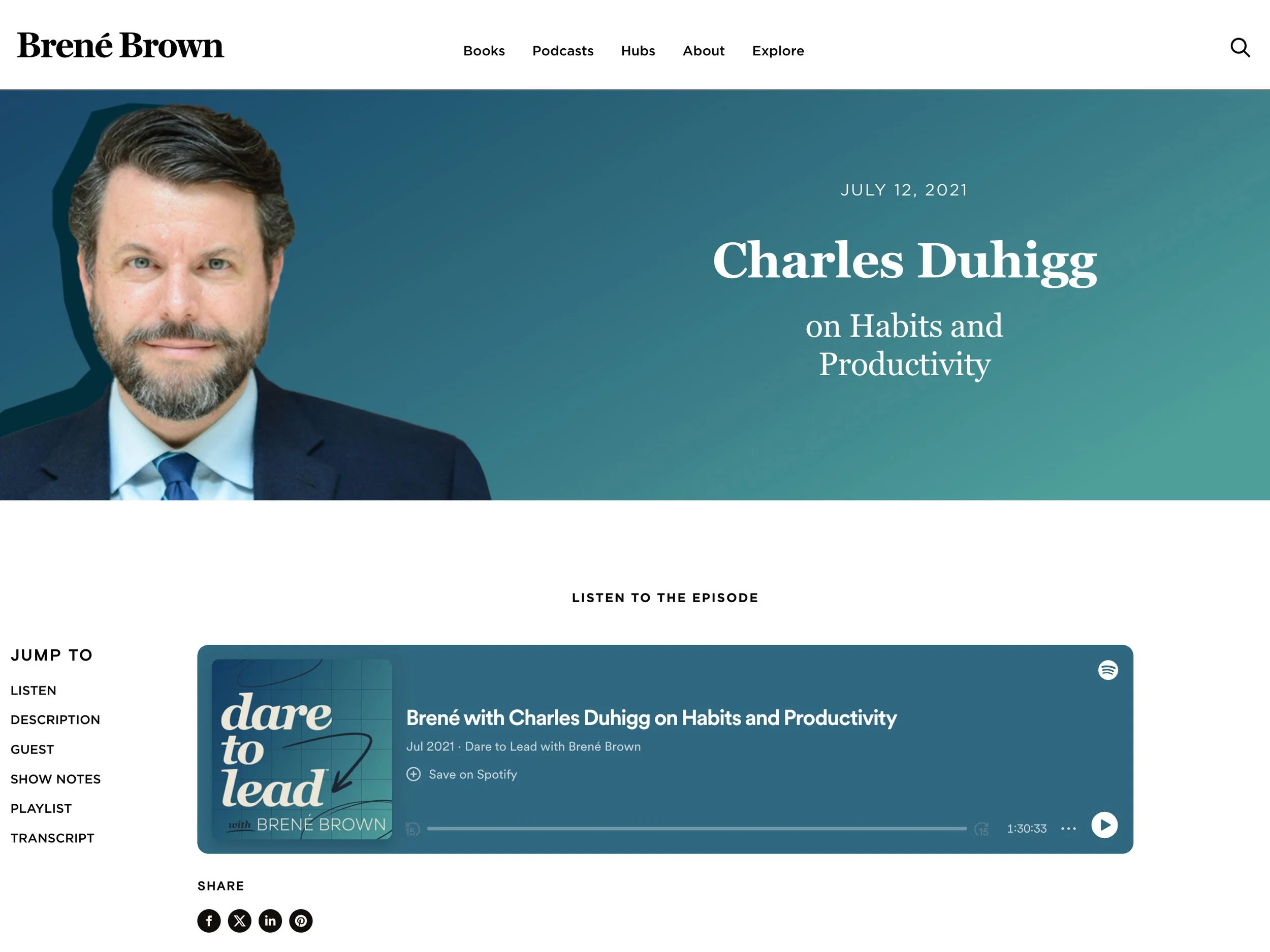
Charles Duhigg on Habits and Productivity
Brené Brown | Jul 12, 2021
-

How to Be More Productive
Freakonomics | Apr 20, 2016
-
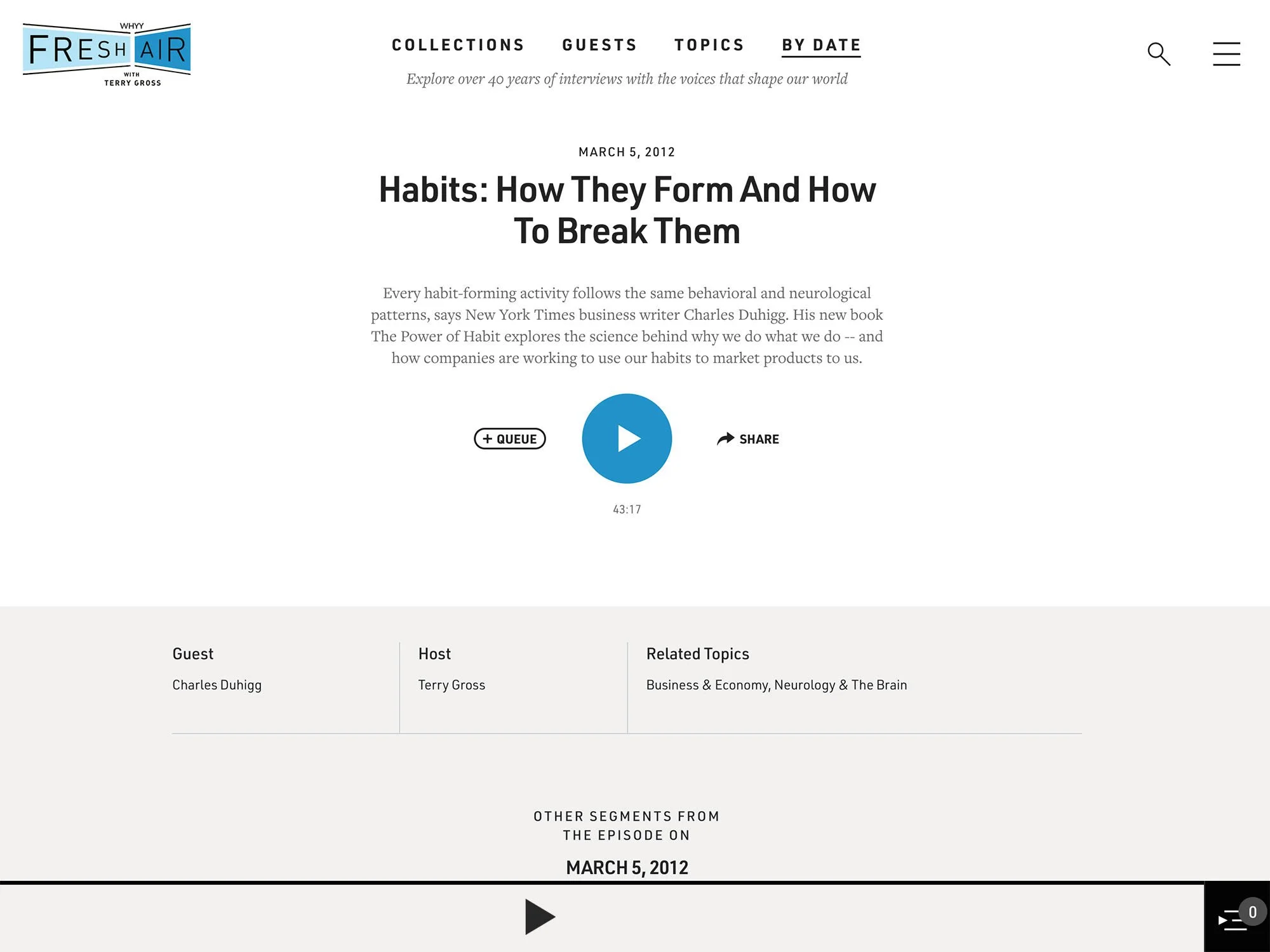
Habits: How They Form And How To Break Them
Fresh Air | Mar 5, 2012
